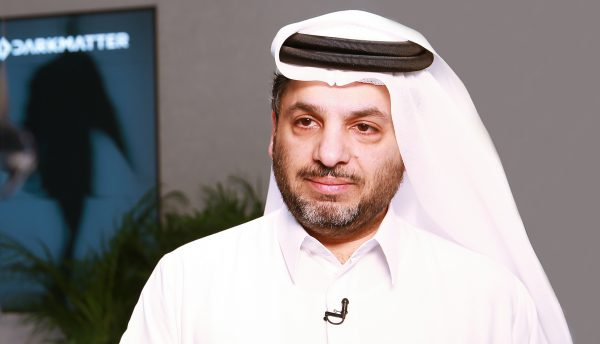DarkMatter, an international cyber security firm headquartered in the UAE, is marking one year since it began communicating and showcasing its expertise to the public with a major presence at the RSA Conference Abu Dhabi 2016. Over the last 12 months the firm has seen its staff numbers increase tenfold to over 500, with its geographic presence expanding to markets including Canada, Belarus, Finland and China.
DarkMatter’s meteoric growth mirrors the requirement for the development of more sophisticated cyber security solutions as the modern threat landscape continues to evolve and expand. Over the last 12 months, DarkMatter has been dedicated to supporting its clients in the development of cyber resilience solutions aimed at safeguarding their highly-prized digital information and environments.
Commenting on achieving this milestone, Faisal Al Bannai, DarkMatter Founder and Chief Executive Officer said, “We believe we are at the intersection of the correct time, correct geography, and correct outlook to be able to effect real change in cyber security. Throughout the course of the last 12 months we have said the security approach for the IT sector is outdated and vulnerable in light of digital transformation. As such, as a society we need to recalibrate our approach and implementation of cyber security within digital environments in order to sustain our modern way of life.”
Faisal Al Bannai continued, “I would like to thank our stakeholders for having faith in our ability to deliver on our vision to ‘protect the future by securing its technologies’, and we look forward to further engagement and success in delivering peace of mind across digital platforms in the years to come.”
Major developments at DarkMatter during the course of the last 12 months include: The development and delivery of a secure communications application used by governments; the extension of the firm’s already formidable service portfolio to include a blockchain software development kit, big data and analytics, test and validation labs, and Cyber Resilience Platform; and the selection of DarkMatter as one of only 30 companies included from over 2,200 around the world to participate in the Dubai Future Accelerators initiative.
As part of DarkMatter’s participation at the RSA Conference Abu Dhabi 2016, Faisal Al Bannai briefed assembled media and reiterated the firm’s commitment to innovation. He also emphasised DarkMatter’s desire to continue to attract tier-one talent from across the globe and produce cutting-edge offerings.
Highlighting the clear and present cyber security threat that exists, Europol, a European Union security agency, recently published its 2016 Internet Organised Crime Threat Assessment (IOCTA) research, which identified an expanding cyber criminal economy exploiting increasingly Internet-enabled lives and low levels of digital hygiene. Informed largely by Europol’s law enforcement and cooperation partners, the report identifies eight main cyber crime trends.
Trend 1: Crime-as-a-Service
The digital underground is underpinned by a growing Crime-as-a-Service model that interconnects specialist providers of cyber crime tools and services with an increasing number of organised crime groups.
Trend 2: Ransomware
Ransomware and banking Trojans remain the top malware threats, a trend unlikely to change for the foreseeable future.
Trend 3: The criminal use of data
Data remains a key commodity for cyber criminals. It is procured for immediate financial gain in many cases but, increasingly, also acquired to commit more complex fraud, encrypted for ransom, or used directly for extortion.
Trend 4: Payment fraud
EMV (chip and PIN), geo-blocking and other industry measures continue to erode card-present fraud, but logical and malware attacks directly against ATMs continue to evolve and proliferate.
Trend 5: Online child sexual abuse
The use of end-to-end encrypted platforms for sharing media, coupled with the use of largely anonymous payment systems, has facilitated an escalation in the live streaming of child abuse.
Trend 6: Abuse of the Darknet
The Darknet continues to enable criminals involved in a range of illicit activities, such as the exchange of child sexual exploitation material.
Trend 7: Social engineering
An increase of phishing aimed at high value targets has been registered by enforcement private sector authorities.
Trend 8: Virtual currencies
Bitcoin remains the currency of choice for the payment for criminal products and services in the digital underground economy and the Darknet.



